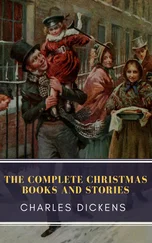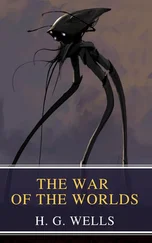There is a brief how many sports are ripe.
Make choice of which your Highness will see first.
[Giving a paper.]
The. [Reads.]
“The battle with the Centaurs, to be sung
By an Athenian eunuch to the harp.”
We’ll none of that: that have I told my love,
In glory of my kinsman Hercules.
“The riot of the tipsy Bacchanals,
Tearing the Thracian singer in their rage.”
That is an old device; and it was play’d
When I from Thebes came last a conqueror.
“The thrice three Muses mourning for the death
Of Learning, late deceas’d in beggary.”
That is some satire, keen and critical,
Not sorting with a nuptial ceremony.
“A tedious brief scene of young Pyramus
And his love Thisby; very tragical mirth.”
Merry and tragical? Tedious and brief?
That is hot ice and wondrous strange snow.
How shall we find the concord of this discord?
Phil.
A play there is, my lord, some ten words long,
Which is as brief as I have known a play;
But by ten words, my lord, it is too long,
Which makes it tedious; for in all the play
There is not one word apt, one player fitted.
And tragical, my noble lord, it is;
For Pyramus therein doth kill himself;
Which when I saw rehears’d, I must confess,
Made mine eyes water; but more merry tears
The passion of loud laughter never shed.
The.
What are they that do play it?
Phil.
Hard-handed men that work in Athens here,
Which never labor’d in their minds till now;
And now have toiled their unbreathed memories
With this same play, against your nuptial.
The.
And we will hear it.
Phil.
No, my noble lord,
It is not for you. I have heard it over,
And it is nothing, nothing in the world;
Unless you can find sport in their intents,
Extremely stretch’d, and conn’d with cruel pain,
To do you service.
The.
I will hear that play;
For never any thing can be amiss,
When simpleness and duty tender it.
Go bring them in; and take your places, ladies.
[Exit Philostrate.]
Hip.
I love not to see wretchedness o’ercharged,
And duty in his service perishing.
The.
Why, gentle sweet, you shall see no such thing.
Hip.
He says they can do nothing in this kind.
The.
The kinder we, to give them thanks for nothing.
Our sport shall be to take what they mistake;
And what poor duty cannot do, noble respect
Takes it in might, not merit.
Where I have come, great clerks have purposed
To greet me with premeditated welcomes;
Where I have seen them shiver and look pale,
Make periods in the midst of sentences,
Throttle their practic’d accent in their fears,
And in conclusion dumbly have broke off,
Not paying me a welcome. Trust me, sweet,
Out of this silence yet I pick’d a welcome;
And in the modesty of fearful duty
I read as much as from the rattling tongue
Of saucy and audacious eloquence.
Love, therefore, and tongue-tied simplicity
In least speak most, to my capacity.
[Enter Philostrate.]
Phil.
So please your Grace, the Prologue is address’d.
The.
Let him approach.
[Flourish trumpet.]
Enter [Quince for] the Prologue.
Pro.
If we offend, it is with our good will.
That you should think, we come not to offend,
But with good will. To show our simple skill,
That is the true beginning of our end.
Consider then, we come but in despite.
We do not come, as minding to content you,
Our true intent is. All for your delight
We are not here. That you should here repent you,
The actors are at hand; and, by their show,
You shall know all, that you are like to know.
The.
This fellow doth not stand upon points.
Lys. He hath rid his prologue like a rough colt; he knows not the stop. A good moral, my lord: it is not enough to speak, but to speak true.
Hip. Indeed he hath play’d on this prologue like a child on a recorder—a sound, but not in government.
The. His speech was like a tangled chain; nothing impair’d, but all disorder’d. Who is next?
Enter [with a Trumpet before them] Pyramus and Thisby and Wall and Moonshine and Lion.
Pro.
Gentles, perchance you wonder at this show;
But wonder on till truth make all things plain.
This man is Pyramus, if you would know;
This beauteous lady Thisby is certain.
This man, with lime and rough-cast, doth present
Wall, that vile Wall, which did these lovers sunder;
And through Wall’s chink, poor souls, they are content
To whisper. At the which let no man wonder.
This man, with lantern, dog, and bush of thorn,
Presenteth Moonshine; for if you will know,
By moonshine did these lovers think no scorn
To meet at Ninus’ tomb, there, there to woo.
This grisly beast, which Lion hight by name,
The trusty Thisby, coming first by night,
Did scare away, or rather did affright;
And as she fled, her mantle she did fall,
Which Lion vile with bloody mouth did stain.
Anon comes Pyramus, sweet youth and tall,
And finds his trusty Thisby’s mantle slain;
Whereat, with blade, with bloody blameful blade,
He bravely broach’d his boiling bloody breast;
And Thisby, tarrying in mulberry shade,
His dagger drew, and died. For all the rest,
Let Lion, Moonshine, Wall, and lovers twain
At large discourse, while here they do remain.
Exit [with Pyramus,] Thisby, Lion, and Moonshine.
The. I wonder if the lion be to speak.
Dem. No wonder, my lord; one lion may, when many asses do.
Wall.
In this same enterlude it doth befall
That I, one [Snout] by name, present a wall;
And such a wall, as I would have you think,
That had in it a crannied hole or chink,
Through which the lovers, Pyramus and Thisby,
Did whisper often, very secretly.
This loam, this rough-cast, and this stone doth show
That I am that same wall; the truth is so;
And this the cranny is, right and sinister,
Through which the fearful lovers are to whisper.
The. Would you desire lime and hair to speak better?
Dem. It is the wittiest partition that ever I heard discourse, my lord.
[Enter Pyramus.]
The.
Pyramus draws near the wall. Silence!
Pyr.
O grim-look’d night! O night with hue so black!
O night, which ever art when day is not!
O night, O night! alack, alack, alack,
I fear my Thisby’s promise is forgot!
And thou, O wall, O sweet, O lovely wall,
That stand’st between her father’s ground and mine!
Thou wall, O wall, O sweet and lovely wall,
Show me thy chink, to blink through with mine eyne!
[Wall holds up his fingers.]
Thanks, courteous wall; Jove shield thee well for this!
But what see I? No Thisby do I see.
O wicked wall, through whom I see no bliss!
Curs’d be thy stones for thus deceiving me!
The. The wall methinks, being sensible, should curse again.
Pyr. No, in truth, sir, he should not. ‘Deceiving me’ is Thisby’s cue. She is to enter now, and I am to spy her through the wall. You shall see it will fall pat as I told you. Yonder she comes.
Enter Thisby.
This.
Читать дальше












![Уильям Шекспир - The Works of William Shakespeare [Cambridge Edition] [Vol. 1 of 9]](/books/746589/uilyam-shekspir-the-works-of-william-shakespeare-c-thumb.webp)